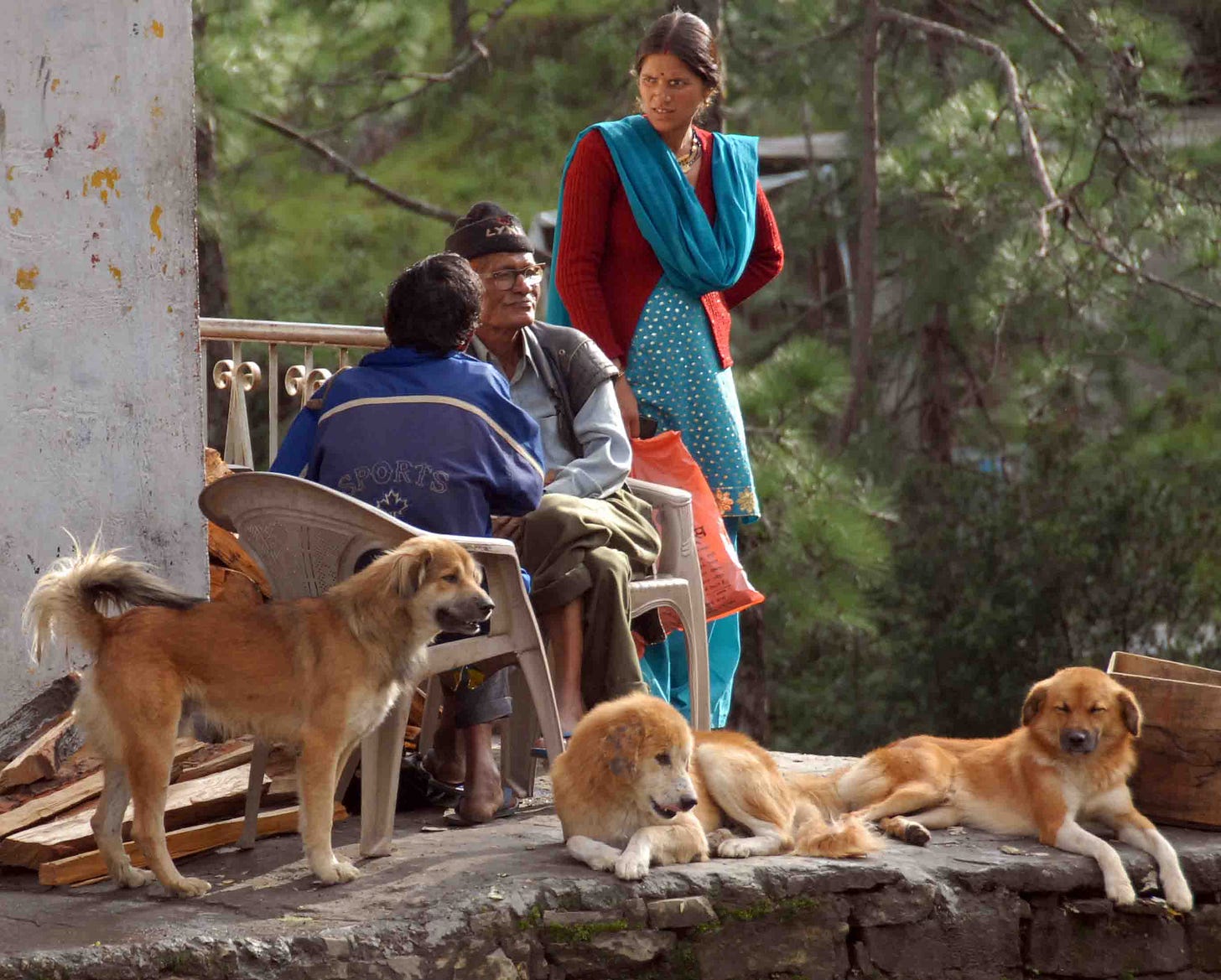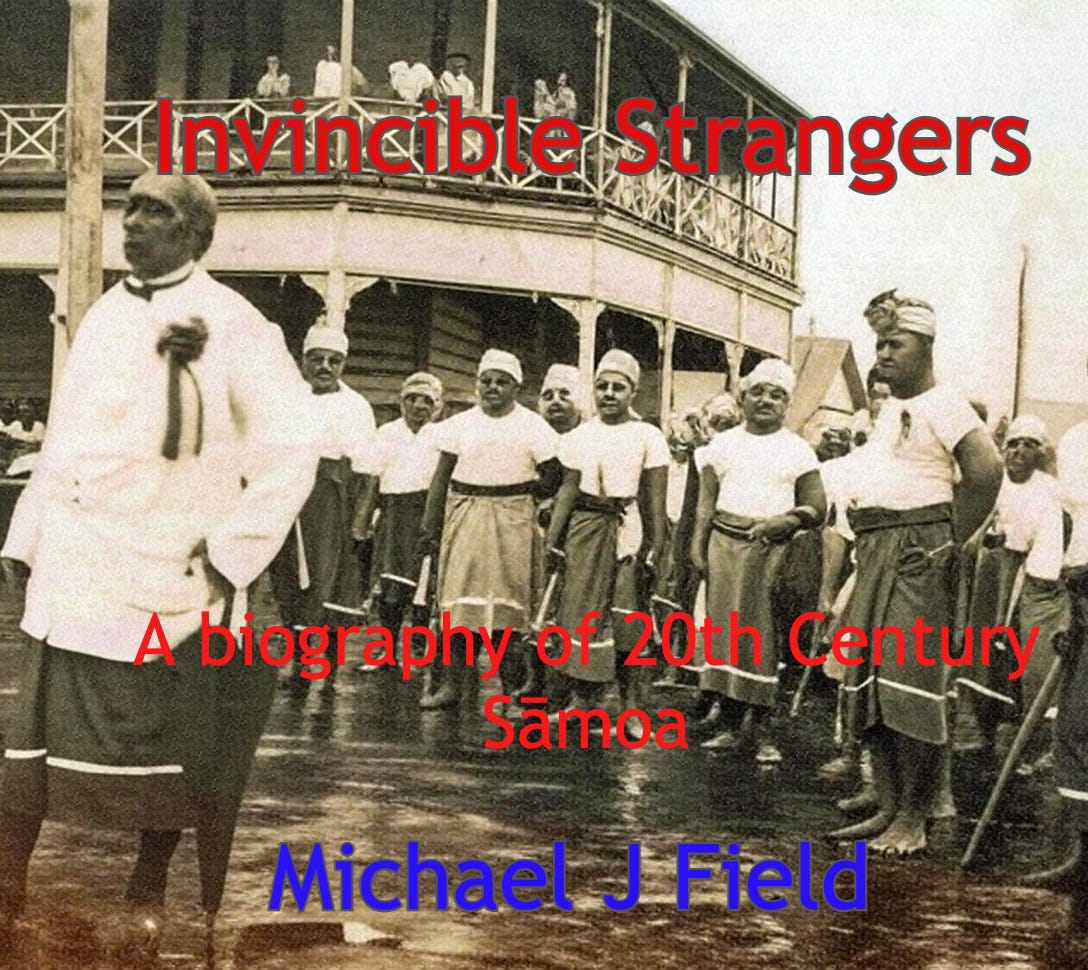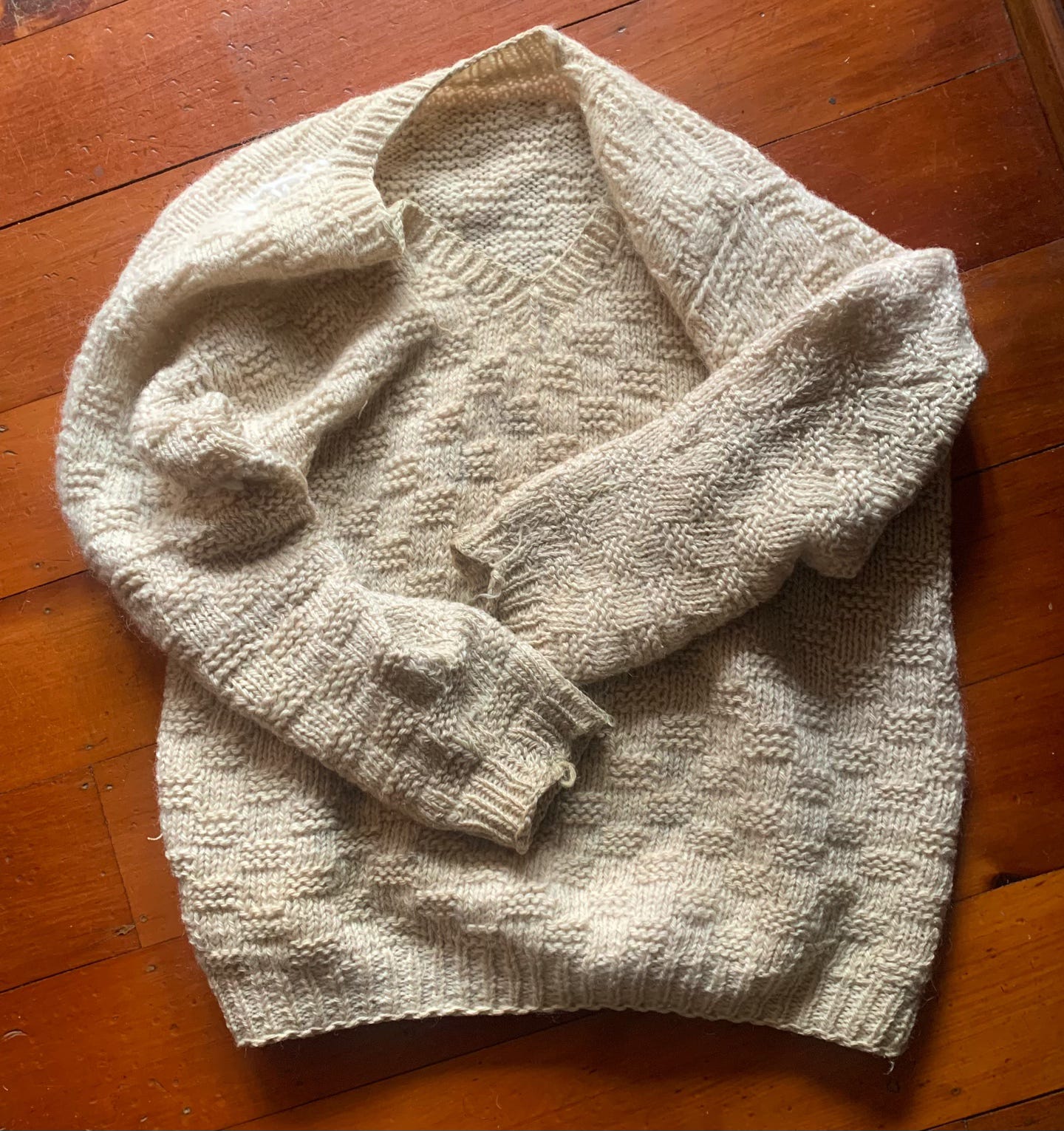A Worn Jersey’s Tale
From Himalayan Hands to Heart: Enduring Warmth of an old Woollen Jersey
An old jersey, once white and now stubbornly grey, has carried me through winters and years. Bought in a Himalayan hill town at Lakshmi Ashram, founded by one of Gandhi’s closest disciples, it is more than just a piece of clothing. Each time I pull it on, I recall the girls singing, the mountain air, and the quiet weight of history woven into its seams.
A couple of days ago, as Tāmaki Makaurau took another hit from an annoyingly lingering winter, I pulled on an old woollen jersey.
Once upon a time it was white - now it’s more undetermined grey. Neglect, and my taking it for granted, has stripped it of shape, but it still clings stubbornly to its stitches, seams, and knots. Pure wool, nothing synthetic, it remains what a jersey should be: warm. And yet, suddenly, unmistakably, old. Indeed, this latest time, I realised it needed some running repairs which should have been done by someone who had an idea of how to patch up old knitting. But with the aid of my all-purpose Leatherman, and a small skein of white wool, the jersey was sutured together. The old wool and new do not match, but no matter, the jersey has long moved from being a thing of beauty, to a functional object.
All this was in September and got me thinking about where the jersey came from. By chance (after research as my memory is not up to it) I established that I had purchased it in September 2009. The place it came from was easy to recall; Lakshmi Ashram, in Kausani, Uttarakhand, India, 270 kilometres north east of New Delhi. Hand crafting and selling jerseys was part of their fund raising. I’ve no idea what I paid for it; hardly seems the point.
Kausani is one of those quaint raj places spotted over India - a hill station. Somewhat unkindly it is known to be part of the “Lesser Himalayas”, at 1900 metres above sea level. High on a pine-covered ridge, it offers a 300 kilometre-wide panoramic view of Himalayan peaks Trisul, Nanda Devi (at 7816 metres India’s second highest peak) and Panchchuli. More than a few tourists gaze at the peaks and wonder where Everest is, but that peak in Nepal cannot be seen from India.
Mahatma Gandhi called Kausani the “Switzerland of India’. Getting to it in the Mahatma’s day would have been daunting, and while 2009 had a modern air to it, was challenging. A train from Delhi terminates at Kathgodam, 145 kilometres south of Kausani, and 1300 metres below it. In the parking lot outside the station, negotiations are conducted with assorted drivers who charge various prices to get people up to Kausani. Many of the men of Kausani serve in the army, and the drivers are often either on leave from it, or recent retirees. In simple language, the road up is terrifying, but with its own interests. Drivers moving up and down, around bends or on steep slopes, communicate with horns. There are few collisions, although wreckage suggests falling off cliffs is relatively common, and pretty final.
While summer tourism helps fill guest houses, Kausani is small. Its economy depends on hand made shawls, woollen clothes (like my jersey) and blankets. There is also a decent sized tea estate.
Uttarakhand, India’s youngest state, is blessed with some of the finest dogs anywhere. There is a good reason, locals say. Dogs need to be fit and healthy, or the local tigers and the increasingly threatened leopards find them an easy meal.
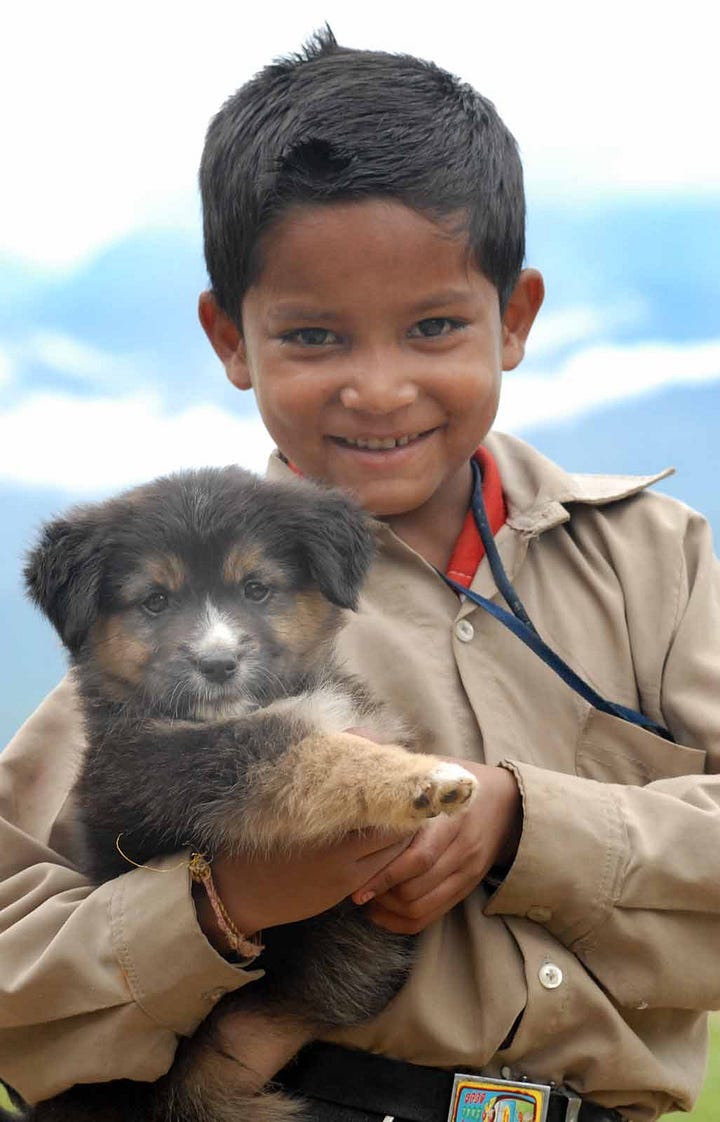
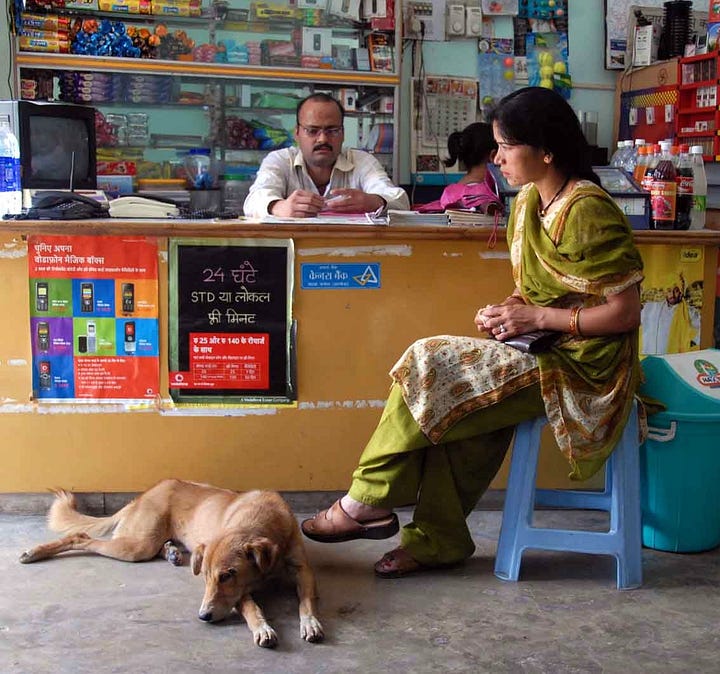
Compared with the dramatic tourist attractions of India, Kausani seemingly has little to offer. However it lingers in the soul in a way a place like the UNESCO World Heritage Site at Mahabalipuram, near Chennai, do not. In Kausani’s small shopping street, afterall, I had a shave for 10 rupees - or was it 12? - and the barber accidentally cut me. He reached for a rock, saying it contained magic, and touched the cut. Bleeding stopped immediately. One remembers that kind of thing.
Keep reading with a 7-day free trial
Subscribe to Michael Field's South Pacific Tides to keep reading this post and get 7 days of free access to the full post archives.


